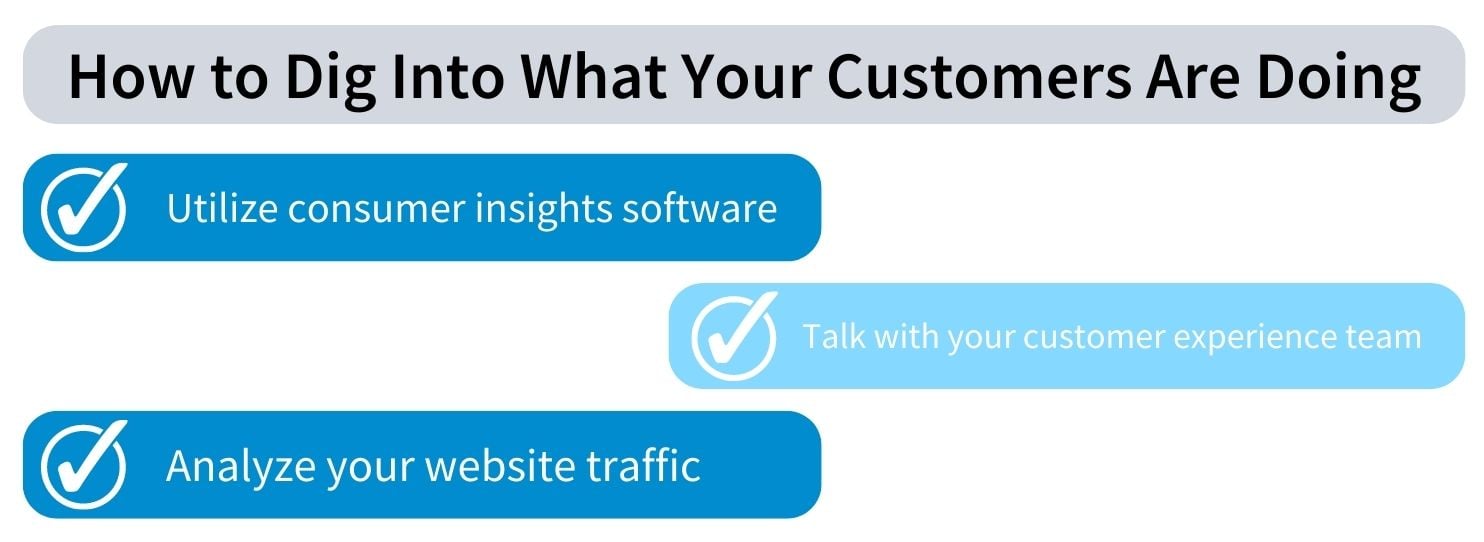Trying to read your customers' minds? Let data help!
April 15, 2020 •Bridget Johnston

This blog was written by Bridget Johnston, a contributing guest blogger from Pattern89.
We don’t have to tell you. Times certainly have become strange. Many marketers are working from home, and we’re all learning new things, day-by-day.
Social distancing and working remote comes with its own variety of unique and new online retail behaviors. E-commerce may see an uptick in sales. Social media marketers are seeing more time spent on social networks too, and this means more ads are engaged with.
Despite the uncertainty in the world, data is still being collected. Consumer behaviors are changing, but they’re still being analyzed by systems we’ve previously built.
No marketer knows the answers right now, but in these uncertain times, data can help.
Consumer behavior has changed. Data understands how.
Think about your personal shopping and social behaviors lately. How have they changed?
For most people, we’re spending more time than ever online. In this era of social distancing, social media and online shopping have been the ways we’re communicating with others and comforting ourselves.
For some industries, this means a big uptick in site visitors and conversions, while others struggle. No matter where your business falls in this new spectrum, data can help you grow your audience and better understand them.
 Take this time to slow down, take a break and really dig into what your customers are doing. Free solutions are available to generate consumer insights, and you can take advantage of them right now. Talk with your customer experience teams to learn what their interactions have been like. Analyze website visits on Google Analytics to understand how traffic is fluctuating. With this intensive study, you can track and visualize journey-based metrics to identify a number of different types of consumer insights. You can also compare and contrast pre- and post-pandemic behavior to identify gaps in customer experience, then strategize how to address them.
Take this time to slow down, take a break and really dig into what your customers are doing. Free solutions are available to generate consumer insights, and you can take advantage of them right now. Talk with your customer experience teams to learn what their interactions have been like. Analyze website visits on Google Analytics to understand how traffic is fluctuating. With this intensive study, you can track and visualize journey-based metrics to identify a number of different types of consumer insights. You can also compare and contrast pre- and post-pandemic behavior to identify gaps in customer experience, then strategize how to address them.
Adopting technologies to understand consumers is another great solution. Data analytics software solutions give businesses and marketing teams quick and comprehensive ways to study customer behavior. Their detailed and digestible data analysis can be done most efficiently and effectively, when using your best solution.

Data knows what will, and will not, work for your advertising.
Along with being able to make determinations on customer experiences and journeys, data science can predict what content resonates with your audiences.
For example, Pattern89’s AI has studied creative performance for Facebook ads during the COVID-19 outbreak. Its AI has already determined drops in imagery depicting “travel” and “human connection,” as well as spikes in ads showing sick emojis and using the terms “rest” and “sleep” in their copy.
People are creating more data points than ever while social distancing, and AI is here to help marketers understand it. While it can predict trends and patterns in health/sickness themed advertising creative, it can also predict what will engage your specific audiences on social media as well.
Take this time to develop your marketing strategy.
It feels like the whole business world is taking a moment to reset itself. In many ways, that’s true and marketers should do the same. Beyond taking care of yourself outside of work, you can also use this opportunity to better care for your marketing strategy.
Even though this era in our history is quite rocky, one thing is always clear and reliable, when it comes to your customers: data.
Featured Articles
Categories
- Attribution Tracking (13)
- Channel Optimization (11)
- Consumer Insights (68)
- Content Marketing (251)
- Data Science (8)
- Digital Marketing (6)
- Digital Transformation (26)
- Enterprise (10)
- Lead Generation (14)
- Market Intelligence (8)
- Marketing Analytics (39)
- Marketing Attribution (57)
- Marketing Management (153)
- Marketing Operations (86)
- Organic Search (222)
- Paid Search (52)
- Pillar-Based Marketing (63)
- Programmatic Advertising (9)
- SaaS Content (14)
- SaaS Marketing (29)
- Search Marketing (111)
- SEO Keyword Research (28)
- SEO Pillar (18)
- SEO Strategy (46)
- SMB (5)
- Website Content (12)


